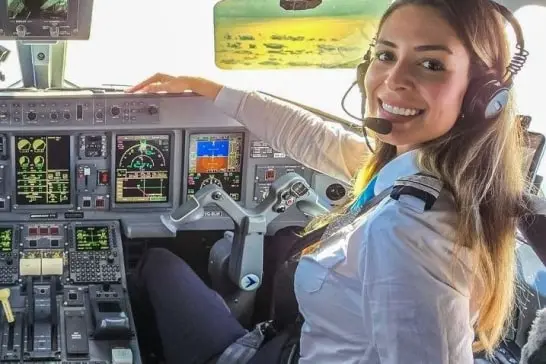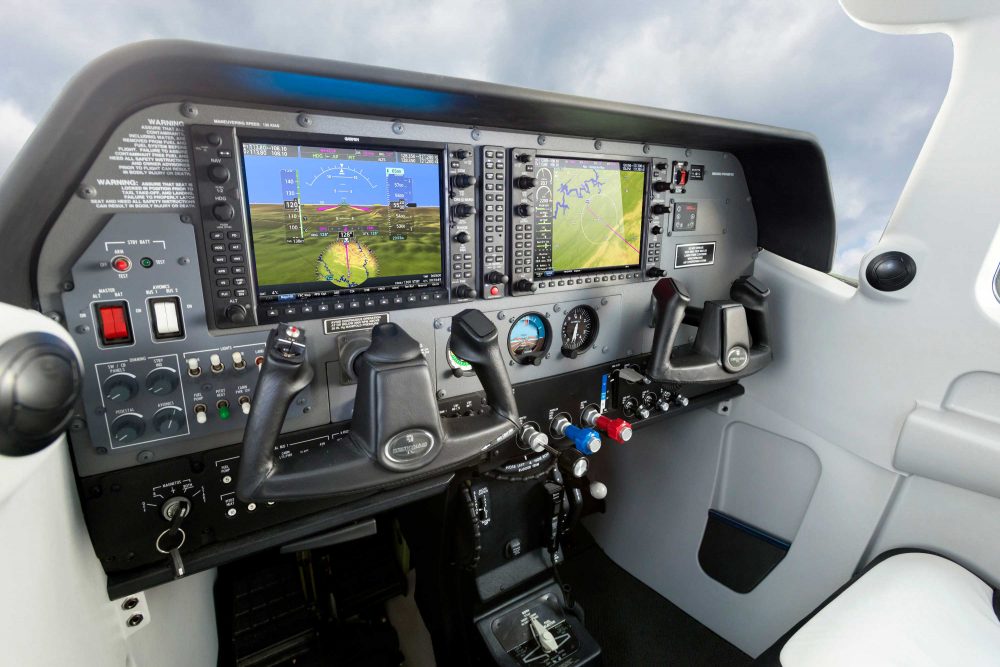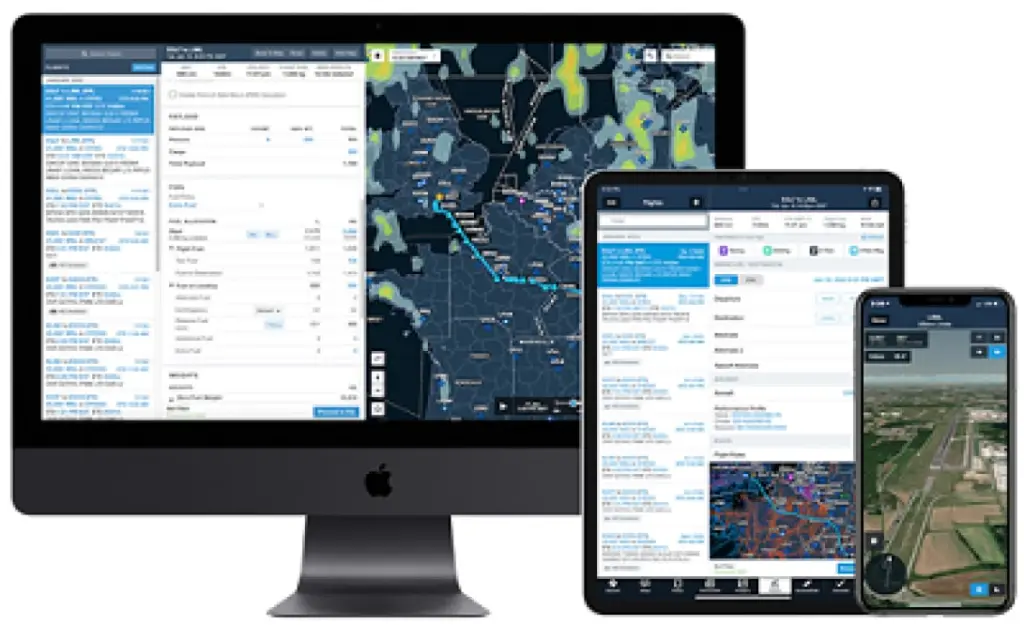For over 30-years, Florida Aviation Flight Academy has trained professional pilots from more than 50 countries with one of the best safety records in the industry.


The Professional Aeronautics Certificate (PAC) is a 21-month (two academic years) accelerated program designed for students seeking a fast-track pathway to a professional flying career. The PAC program is certified under Federal Aviation Regulation (FAR) Part 61, and using best-in-class technology, the PAC program positions graduates ahead of their peers by training them on the most advanced equipment available.
Specifically, students will learn to fly in Garmin 1000-equipped, Cessna 172, Technologically Advanced Aircraft (TAA) as well as Advanced Aviation Training Devices (AATDs) running artificially intelligent (AI) weather-simulation software developed with research funding from the Federal Aviation Administration to train pilots to make safer decisions. The PAC program also utilizes Boeing’s ForeFlight® Electronic Flight Bag (EFB) running on wifi and cellular-enabled iPads for real-time, in-flight traffic and navigation information.
Educational components include ground school, flight training, and home study, all of which are critical to gaining employment as a professional aviator. The total time commitment for the PAC program is approximately 20 hours per week while enrolled and is designed to facilitate exciting
career opportunities for traditional college students, returning adult students seeking a career change, military Veterans, and high-school juniors and seniors who want to dual enroll and get started early to capitalize on an explosive hiring market in professional aviation.
The PAC program progresses students through ground-school courses and flight training to earn the Federal Aviation Administration (FAA) licenses and ratings required to become professional aviators. In this program, students earn their private-pilot license in the first fall semester and their instrument flight rating in the second semester (spring). Summer is spent building hours with no ground classes. In year two, students will earn their commercial-pilot licenses during fall semester and their certified flight instructor (CFI) and certified flight instructor instrument (CFII) ratings.
During the first two semesters, ground school will meet from 6:00pm to 9:00pm EST one evening per week on a day to be determined (TBD), and each student will be assigned a 2.5- hour time block, first come, first served, on Mon, Wed, and Fri (MWF) or Tues, Thurs, and Sat (TThS). Students will be expected to be at the airport every other day 5 minutes BEFORE the start of their flight time, which will be 7:00a – 9:30a EST, 9:30a – 12:00p EST, 12:30p – 3:00p EST, or 3:00p – 5:30p EST. Make-up flights will be scheduled on Sundays and whenever extra flight spots open, so students who enroll in this program are expected to be 100% committed at all hours of the day, seven days per week. A strict attendance policy will be enforced to ensure successful program completion, and to maintain a core of students who are committed to the work ethic needed to secure great careers in professional aviation. Second-year ground school will also be one day per week for three (3) hours at a time to be determined (TBD), and the same 2.5-hour flight blocks listed above will be assigned MWF or TTHS on a first-come, first-served basis. PAC graduates will typically enter the aviation workforce as certified flight (CFIs) instructors eligible to be hired by Florida Aviation Career Training (FACT) as well as other flight schools in Florida and around the United States. Flight instructors typically spend 18-24 months teaching private, instrument, and commercial students, building flight time and gaining valuable experience required to qualify for commercial pilot jobs with corporate flight departments, air freight operators, regional/national commercial airlines, or other professional aviation careers.
The first semester of the PAC program is designed for students to earn their FAA Private Pilot Certificate. Students will study all subjects necessary to become a private pilot. Lecture topics include aircraft structure, mechanical systems, flight instruments and avionics, aerodynamics, aircraft performance, aviation meteorology, airport operations, navigation, aeromedical factors, rules and regulations. The blended learning format allows for in-depth subject matter discussion centered around PC-based simulation scenarios with classroom presentation of aviation principles taught online via eLearning.

The second semester of the PAC program is designed for students to earn an airplane Instrument Rating. During this semester, students will study the subjects necessary to become an instrument-rated pilot so that they can legally fly in clouds and under other restricted visibility conditions. Lecture topics include Federal Aviation Regulations applicable to Instrument Flight Rules (IFR); air traffic control; IFR navigation; IFR enroute and instrument approach procedures; aviation weather reports, forecasts, and observations; hazardous weather detection and avoidance; safe and efficient operations under IFR rules in instrument meteorological conditions (IMC); aeronautical decision making; and crew resource management. The blended learning format allows for in-depth subject matter discussion centered around PC-based simulation scenarios featuring classroom presentations of aviation principles taught online via eLearning.
The third semester of the PAC program is designed for students to earn a Commercial Pilot Certificate for airplanes. During this semester, students will study to master those subjects necessary to become a commercial pilot. The commercial pilot certification is the minimum level of qualification required by the FAA in order to work for compensation transporting cargo or passengers, as well as performing other operations such as aerial surveying, air tours, skydiving operations, search and rescue, and many more. Lecture topics include Federal Aviation Regulations applicable to commercial pilot privileges, limitations, and flight operations, as well as more in-depth advanced coverage of the topics learned during the first two semesters.

The fourth and final semester of the four-course PAC program is designed for students to become FAA Certified Flight Instructors (CFI) with an Instrument Instructor (CFII) airplane rating.
During the course, students study the subjects necessary to become flight instructors capable of teaching other student pilots pursuing their own certificates and ratings. This course focuses on the fundamentals of instruction and teaches students how to develop lesson plans and teach the subject matter they themselves previously learned during their own training. At the end of this semester, students will be qualified to take the commercial pilot, CFI, and CFII written and practical examinations and thus complete the PAC Program. Successful graduates are then able to become employed by any FAA-sanctioned flight school as an instructor where they’ll be able to build hours toward the 1,500 hours of flight experience required to apply for an ATP certificate required to fly for scheduled air carriers. This period normally requires 18-24 months of full-time instruction work.
Upon completion of the PAC program, PAC graduates will have the option to obtain their mulitengine rating and up to 25 hours of multiengine flight time for an additional course fee. Most airlines and corporate flight departments will require this rating and hour minimum, but some PAC graduates may choose an alternative career path, which is why the course is optional. There is no formal ground school for the multiengine course.

Students in this program will be trained in Cessna 172 aircraft (cockpit shown above) that are equipped Garmin 1000 avionics panel. The Cessna 172 G1000 is a high-tech trainer aircraft classified by the FAA as a Technologically Advanced Aircraft (TAA), equipped with the most modern avionics suites, helping to ensure that graduates are highly sought-after recruits by regional air carriers and corporate flight departments.
The PAC program also employs Advanced Aviation Training Devices (AATDs). These flight simulator are certified by the FAA to a level of realism that simulates the flight characteristics of the aircraft and its Garmin G1000 avionics as well as over 24,000 world-wide airports, photo-realistic 3D scenery, and volumetric clouds with the most advanced weather simulations available only to PAC students. These simulators allow students to log actual flight time, saving thousands in aircraft rental costs by allowing students to log up to 20 hours of flight time for their instrument rating and up to 50 hours toward their commercial pilot license.
Finally, the PAC program utilizes electronic flight bag (EFB) technology whereby students flight with their own personal iPad loaded with the market-leading EFB application, ForeFlight (see here). ForeFlight runs in Apple iPads and is the most advanced EFB software available. It allows for holistic flight planning, in-flight navigation, flight logging, in-flight traffic alerts, flight following and records and documents management, so our students begin flying just like the professionals from day one.

The cost of the program, which includes ground-school tuition, approximately 255 hours of flight time, and course materials is estimated to be under $87,875 per student. Each semester, flight fees and ground-school tuition must be paid to Florida Aviation Career Training (FACT) prior to enrollment. The cost breakdown is as follows:

The cost of the program will be discussed with potential students during the first meeting.
| Course | Tuition + Syllabus | Flight Fees | Exam Fees | Other Fees | TOTAL |
|---|---|---|---|---|---|
| Private Pilot | $1,000 | $18,568 | $1,275 | $3,484 | $24,327 |
| Instrument Pilot | $1,000 | $22,198 | $1,275 | $899 | $25,372 |
| Commercial Pilot | $1,000 | $19,767 | $1,275 | $1,186 | $23,228 |
| Instructor Pilot | $1,000 | $10,461 | $3,025 | $462 | $14,948 |
| Optional Course | $87,875 | ||||
| Multi-Engine (ME) | N/A | $12,529 | $2,200 | $868 | $15,597 |
| $15,597 |
Prior to building the Professional Aeronautics Certificate (PAC) program, Dr. Chris Johnson was an Assistant Professor at Embry-Riddle Aeronautical University, which is the world’s largest aviation university. He is an Air Force Veteran, commercial pilot, and certified flight instructor (CFI) with instructor-instrument (CFII) and multi-engine instructor (MEI) ratings. He earned a PhD in engineering from the University of Wisconsin – Madison in 2012 where he worked for over 12 years and built the foundation of the PAC program.
Dr. Johnson also owns www.PilotTrainingSystem.com, which is the aviation industry’s only FREE online ground school with over 70,000 YouTube subscribers, and his goal for PAC is to help mitigate the international pilot-shortage crisis by producing the industry’s most qualified graduates who will be highly sought after by airlines and corporate flight departments.
Right now is an ideal time to start flight training. The pilot-shortage crisis that the industry faced in 2017, 2018, and 2019 returned in 2023, and the workforce shortage that is forecasted for the foreseeable future is prompting airlines to pay higher salaries while lowering entry-level minimums. The PAC program is a 19-month program, after which graduates become instructor pilots for another 18-24 months. Once they have gained those all-important flight hours (1,500 hours minimum), they can qualify to apply for an Airline Transport (ATP) rating, making them eligible to be hired by airlines in less than four years from the program start date.
After graduation, most students typically work at flight schools training other students while gaining the flight experience required to meet minimum qualifications for the Airline Transport Pilot (ATP) rating, an FAA requirement for scheduled air carrier pilots and corporate aviation departments operating jet aircraft. Florida Aviation Career Training (FACT) will certainly be looking to retain a good percentage of the graduates for training subsequent classes of student pilots enrolled in the PAC Program. Based on national averages, flight instructors can expect to earn $32,000-$45,000 per year plus, and after 18-24 months of flight instructing, graduates typically move on to be first officers at regional airlines and charter flight departments, earning salaries of approximately $80,000 per year starting pay plus benefits and a signing bonus. Career pilots enjoy yearly raises and career progression that put the average salary after two years at over $122,000 per year, and captains of international airlines earn $300,000+ per year working 10-13 days per month.

Airline pilots fly scheduled passenger or cargo flights and must hold an Airline Transport Pilot (ATP) rating, the highest FAA pilot rating. However, all pilots must first start by earning their private pilot license, getting an instrument rating (to fly in the clouds and low visibility), and then obtain a commercial pilot certificate before they can apply for an ATP rating. There is also a minimum of 1,500 hours of flight experience required to hold an ATP, so commercial pilots most often choose to become flight instructors and then work at a school teaching new pilots while building their hours before taking the ATP exam.
This program is an accelerated, targeted, vocational program for aspiring professional aviators. Whether you are a high school student whose dream it is to be an airline captain or a returning adult student looking for an exciting new career path, this part-time program (estimated time commitment of 20 hours/week) affords the flexibility to work/study or simultaneously pursue a degree while working towards a professional aviation career.
Unfortunately, GI Bill benefits cannot currently be used for flight fees under Federal Aviation Regulation (FAR) Part 61, but we are working to FAR Part 141 approval for the PAC program that will allow GI Bill benefits to be used for flight fees.
This program is built to maintain 9-12 hours of contact learning with instructors each week, and it is expected that students will spend at least another ten (10) hours of personal home study and flight preparation, for an estimated 20 hours per week on average. Students will spend three (3) hours in class one day per week. Additionally, students will be scheduled for three (3) 2.5-hour flight lessons each week. While the ground school courses are generally scheduled according to the academic calendar at St. Johns River State College, the flight training will not (i.e., no lengthy “breaks”). Students will coordinate closely with their instructor on scheduling, and staying on track will require commitment to work around schedule interruptions with variances caused by such things as weather and aircraft maintenance. Students should be prepared to make up cancelled flight lessons on any day of the week, including Sundays if required. Other outside commitments will need to be scheduled accordingly, and students must be flexible and ready to fly when the weather and aircraft availability allows.
Unfortunately, government-backed loans are not an option for flight training because they are for other strictly academic programs. However, some banks, credit unions, and private lenders offer loans for aspiring professional aviators, and some airlines are offering sign-on bonuses big enough to pay back loans in full. We invite you to secure your own lender and can recommend one of our preferred lenders after we have had a chance to review your financing plan. Loan eligibility depends on your credit history and in many cases requires a qualified co-signer. Scholarships and grants are also available at www.FlightScholarship.info, https://www.aopa.org/training-and-safety/learn-to-fly/aviation-scholarships, and https://www.natafoundation.org/education/scholarships/. Also, seek out non-aviation scholarships that may consider and reward your background, interests, and community service.
Yes! All students must obtain a Class 1 medical certification and submit a copy to Florida Aviation Career Training (FACT) prior to enrollment in this program. A Class 1 medical certification ensures future employment as Airline Transport Pilots (ATPs). We highly recommend you speak with us before scheduling your medical exam, and we are happy to provide a recommendation for you.
Yes, Florida Aviation Career Training (FACT) requires students to maintain $50,000 in coverage. Low-cost renters insurance is available through Aircraft Owners and Pilots’ Association (AOPA), which offers a free 3-month trial membership (see https://www.aopa.org/account/flighttrainingjoinform).
For over 30-years, Florida Aviation Flight Academy has trained professional pilots from more than 50 countries with one of the best safety records in the industry.
Copyright © 2024 Florida Aviation Career Training, Inc.